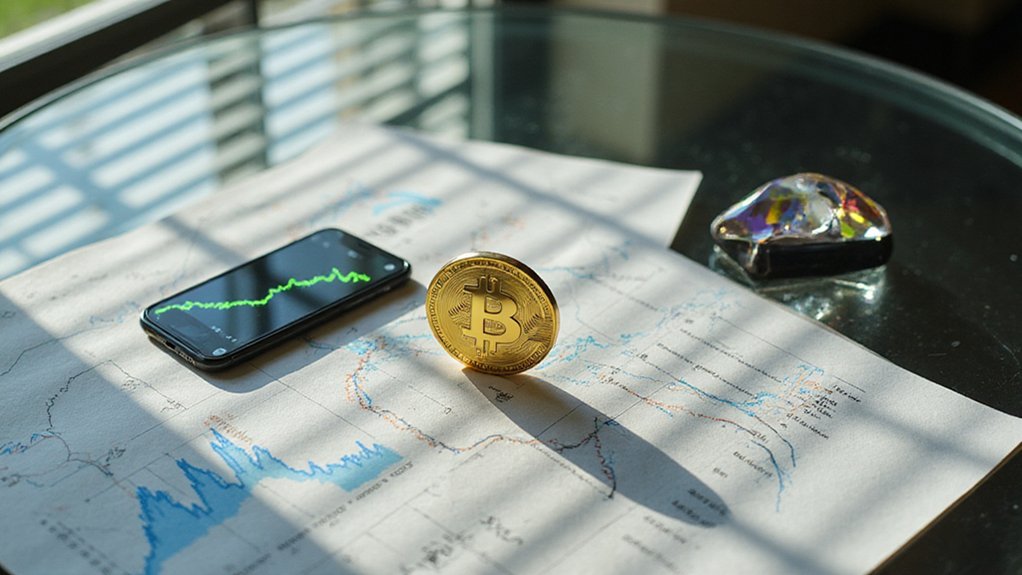JPMorgan’s blockchain division, Kinexys, has initiated perhaps the most ambitious attempt yet to bring order to the wild west of voluntary carbon markets—a fragmented ecosystem where credits trade across competing registries with all the standardization of a medieval bazaar.
The initiative leverages tokenization to transform carbon credits into digital tokens secured on JPMorgan’s blockchain network, promising to inject much-needed transparency and efficiency into a market that currently suffers from credibility issues that would make even crypto enthusiasts blush. By partnering with S&P Global Commodity Insights, EcoRegistry, and the International Carbon Registry, Kinexys aims to create what amounts to the Visa of carbon trading—a unified platform that could standardize an industry notorious for its operational chaos.
JPMorgan’s Kinexys tokenizes carbon credits on blockchain, creating the Visa of carbon trading to standardize an operationally chaotic industry.
The technical architecture builds upon JPMorgan’s Onyx blockchain platform, the same infrastructure powering JPM Coin, ensuring institutional-grade reliability and transaction throughput. This blockchain creates immutable records tracking each credit’s complete lifecycle from issuance through retirement, providing the airtight provenance that has historically been as elusive as consistent quarterly earnings guidance. The platform’s tokenization capabilities allow clients to use digital assets as collateral for intraday financing, extending beyond carbon credits to enhance overall asset utilization.
The collaboration addresses fundamental market inefficiencies by harmonizing standards across multiple registries—a task roughly equivalent to getting competing financial exchanges to agree on settlement protocols. The platform enables 24/7 settlement capabilities, replacing the manual processes that currently make carbon credit transfers resemble correspondent banking from the 1970s. Achieving optimal blockchain efficiency requires careful network parameters balancing to ensure the system maintains security while processing transactions at scale. This innovative approach could significantly boost market liquidity by eliminating the traditional barriers that have constrained trading volumes.
Strategic timing appears impeccable, given the voluntary carbon market’s projected trajectory toward $1 trillion valuation, fueled by net-zero commitments and regulatory pressures that make ESG compliance increasingly non-negotiable. The tokenization approach promises to eliminate settlement delays and administrative overhead while fostering scalability that could attract institutional investors currently deterred by the market’s operational complexities.
JPMorgan’s “plug-and-play” interoperable platform represents more than technological innovation—it’s a calculated move to establish market dominance in what could become the defining environmental commodity of the next decade.
Whether this ambitious standardization effort succeeds where others have failed remains to be seen, but the combination of JPMorgan’s blockchain expertise, strategic partnerships, and institutional credibility suggests this initiative possesses the requisite gravitas to reshape carbon credit trading fundamentally.





